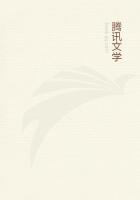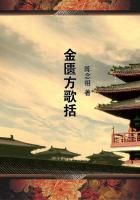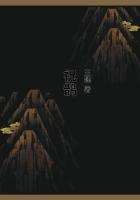I think the Azores must be very little known in America. Out of our whole ship's company there was not a solitary individual who knew anything whatever about them. Some of the party, well read concerning most other lands, had no other information about the Azores than that they were a group of nine or ten small islands far out in the Atlantic, something more than halfway between New York and Gibraltar. That was all. These considerations move me to put in a paragraph of dry facts just here.
The community is eminently Portuguese--that is to say, it is slow, poor, shiftless, sleepy, and lazy. There is a civil governor, appointed by the King of Portugal, and also a military governor, who can assume supreme control and suspend the civil government at his pleasure. The islands contain a population of about 200,000, almost entirely Portuguese. Everything is staid and settled, for the country was one hundred years old when Columbus discovered America. The principal crop is corn, and they raise it and grind it just as their great-great-great-grandfathers did. They plow with a board slightly shod with iron; their trifling little harrows are drawn by men and women; small windmills grind the corn, ten bushels a day, and there is one assistant superintendent to feed the mill and a general superintendent to stand by and keep him from going to sleep. When the wind changes they hitch on some donkeys and actually turn the whole upper half of the mill around until the sails are in proper position, instead of fixing the concern so that the sails could be moved instead of the mill. Oxen tread the wheat from the ear, after the fashion prevalent in the time of Methuselah. There is not a wheelbarrow in the land--they carry everything on their heads, or on donkeys, or in a wicker-bodied cart, whose wheels are solid blocks of wood and whose axles turn with the wheel. There is not a modern plow in the islands or a threshing machine. All attempts to introduce them have failed. The good Catholic Portuguese crossed himself and prayed God to shield him from all blasphemous desire to know more than his father did before him. The climate is mild; they never have snow or ice, and I saw no chimneys in the town. The donkeys and the men, women, and children of a family all eat and sleep in the same room, and are unclean, are ravaged by vermin, and are truly happy. The people lie, and cheat the stranger, and are desperately ignorant, and have hardly any reverence for their dead.
The latter trait shows how little better they are than the donkeys they eat and sleep with. The only well-dressed Portuguese in the camp are the half a dozen well-to-do families, the Jesuit priests, and the soldiers of the little garrison. The wages of a laborer are twenty to twenty-four cents a day, and those of a good mechanic about twice as much. They count it in reis at a thousand to the dollar, and this makes them rich and contented.
Fine grapes used to grow in the islands, and an excellent wine was made and exported. But a disease killed all the vines fifteen years ago, and since that time no wine has been made. The islands being wholly of volcanic origin, the soil is necessarily very rich. Nearly every foot of ground is under cultivation, and two or three crops a year of each article are produced, but nothing is exported save a few oranges--chiefly to England.
Nobody comes here, and nobody goes away. News is a thing unknown in Fayal.
A thirst for it is a passion equally unknown. A Portuguese of average intelligence inquired if our civil war was over. Because, he said, somebody had told him it was--or at least it ran in his mind that somebody had told him something like that! And when a passenger gave an officer of the garrison copies of the Tribune, the Herald, and Times , he was surprised to find later news in them from Lisbon than he had just received by the little monthly steamer. He was told that it came by cable. He said he knew they had tried to lay a cable ten years ago, but it had been in his mind somehow that they hadn't succeeded!
It is in communities like this that Jesuit humbuggery flourishes. We visited a Jesuit cathedral nearly two hundred years old and found in it a piece of the veritable cross upon which our Saviour was crucified. It was polished and hard, and in as excellent a state of preservation as if the dread tragedy on Calvary had occurred yesterday instead of eighteen centuries ago. But these confiding people believe in that piece of wood unhesitatingly.
In a chapel of the cathedral is an altar with facings of solid silver--at least they call it so, and I think myself it would go a couple of hundred to the ton (to speak after the fashion of the silver miners)--and before it is kept forever burning a small lamp. A devout lady who died, left money and contracted for unlimited masses for the repose of her soul, and also stipulated that this lamp should be kept lighted always, day and night.
She did all this before she died, you understand. It is a very small lamp and a very dim one, and it could not work her much damage, I think, if it went out altogether.
The great altar of the cathedral and also three or four minor ones are a perfect mass of gilt gimcracks and gingerbread. And they have a swarm of rusty, dusty, battered apostles standing around the filagree work, some on one leg and some with one eye out but a gamey look in the other, and some with two or three fingers gone, and some with not enough nose left to blow--all of them crippled and discouraged, and fitter subjects for the hospital than the cathedral.
The walls of the chancel are of porcelain, all pictured over with figures of almost life size, very elegantly wrought and dressed in the fanciful costumes of two centuries ago. The design was a history of something or somebody, but none of us were learned enough to read the story. The old father, reposing under a stone close by, dated 1686, might have told us if he could have risen. But he didn't.

